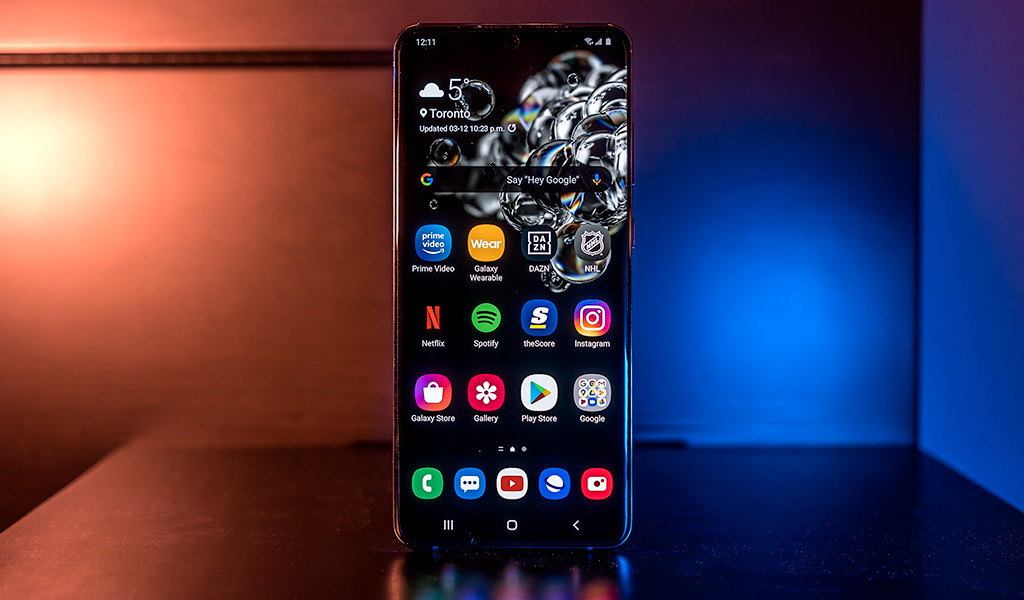
The Galaxy S20 Ultra 5G is Samsung’s latest flagship smartphone packed with its latest and best features, but how good are they when you put them all together? Samsung figures three is better than two or one, having again come out with a trio of phones for its flagship Galaxy S line. The Galaxy S20 and S20+ are flagships on their own merits, only the S20 Ultra is the one meant to push the envelope. Where the other two are highly similar to each other, this one stands out a little more. Even so, choosing between the S20 Ultra and either one of the other two will depend on what you prioritize most.
Samsung Galaxy S20 Ultra SpecsDisplay: 6.9-inch 3040 x 1440 Dynamic AMOLED display 21:9 aspect ratio with 522 pixels per inch |
Getting bigger
The S20 Ultra is the largest phone Samsung has made—purely on screen size—at 6.9-inches. If you remember the Galaxy Mega from back in 2013, you would know that phone was significantly taller and wider than this phone is, despite having a 6.3-inch display. It’s also only 0.1-inches bigger than the Galaxy Note10.
Even with its super thin bezels, it’s going to be an unwieldy device for some. The camera array has a noticeable bump in the back, and the added dimensions all around contribute to a heavier frame. If you like big phones, there aren’t too many that will be bigger than this.
As I noted in my review of the other two S20 devices, Samsung wisely abandoned the curved displays it championed for so long. This phone has a flat screen and is better for it. It was probably also a good idea to move the front-facing camera back to the middle, rather than to the right-hand corner.
Under the hood, the S20 Ultra isn’t all that different from the other two models. The processor, RAM and internal storage are the same. The microSD card slot to expand storage further returns, while the headphone jack doesn’t. Samsung removed it, marking the first time it has done so for a Galaxy S phone. The company also combined the dedicated Bixby button with the power button and moved it over to the right side above the volume buttons.
The feature set is extensive, but the S20 Ultra is largely defined by its camera, headlined by its 108-megapixel standard wide lens. It’s an impressive camera array on paper, and there’s more to it once you dig deeper.
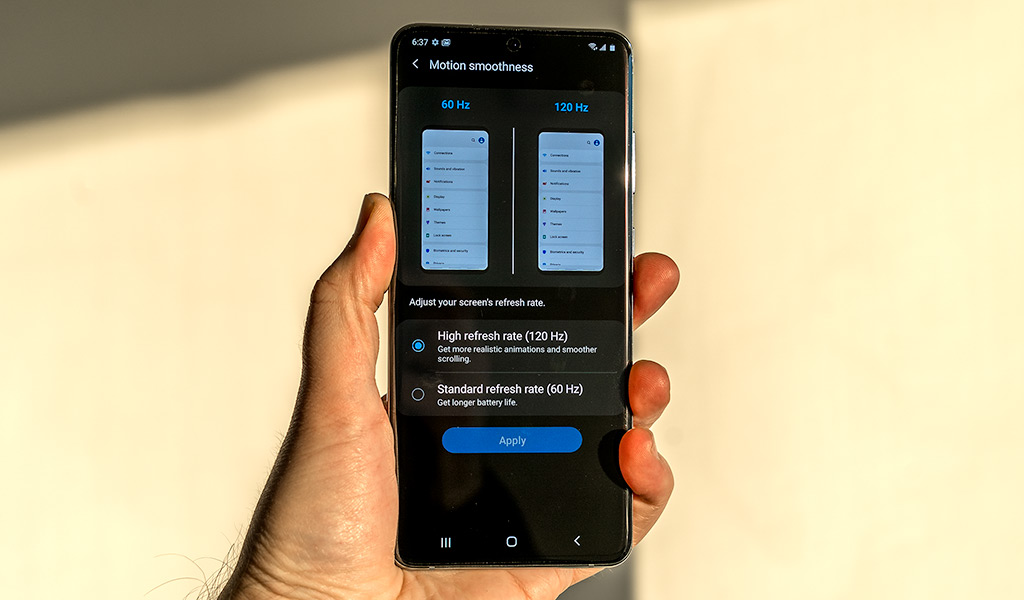
Performance and software
There’s a lot to like about how this phone performs. It’s powerful enough to handle everything from streaming media to gaming. As a daily driver, it’s a workhorse, and if productivity is important to you, you’ve got a big screen and efficient battery life working for you.
In fact, I had little to complain about when it came to just using the phone like I normally would. I’m not crazy about Samsung’s ultrasonic fingerprint sensor, though. If there’s going to be a new version coming, it’s likely coming in the next Galaxy Note. In the S20 Ultra, it can sometimes be unresponsive or take a little too long to get past the lock screen.
On the other hand, the phone supports a 120Hz refresh rate for the screen. It’s not enabled out of the box, but you can set it by going to Settings>Display>Motion smoothness. You’ll be glad you did because it makes for a smooth experience navigating the interface and apps. Scroll through a social media feed or news article and it becomes obvious. It’s buttery smooth and makes a difference when playing more demanding games.
There is a catch, though. The phone offers a 3400 x 1080 resolution option (it’s 2400 x 1080 by default), but when you select that, 120Hz won’t work. It’s likely Samsung did this to preserve longer battery life, but in any case, you can’t use both at once. I always chose 120Hz over the higher resolution for the simple fact 2400 x 1080 still looks great on this gorgeous display.
Although it will show itself in time, the marriage of hardware and software here is pretty robust, making the S20 Ultra a more than capable handset.

Camera – Space Zoom
This is really the bread and butter of the device. More importantly, it’s what sets it apart from the other two S20 models. Samsung crammed a lot into the camera array, but as I’ll explain, it’s not all especially useful.
I’ll start with Space Zoom, the 100x zoom in the 108-megapixel standard lens. The moment Samsung announced it, I was immediately skeptical. I was right to be because the resulting image is totally unusable. It is a technical feat to make a phone zoom in that far, but there are virtually no optics involved, so what you end up with is a mostly-cropped digital zoom that makes the photo look like a blotchy, pixilated photo.
Even at 30x zoom, the photos are okay, but not exceptional. It is cool to be able to get something out of zooming in that far, but again, don’t expect anything impressive. At 10x zoom, however, results look far more interesting. The hybrid zoom combines the 4x optical zoom of the 48-megapixel telephoto lens and adds digital zoom to make up the rest. It’s just the right number because it doesn’t push the image sensor to overly crop or interpret a scene.
All this zooming also makes it challenging to shoot handheld. At 10x, it’s not too bad, but above that, you will find it hard to frame a shot. At 100x, it’s almost impossible, as the slightest shake can pull the camera off-centre.
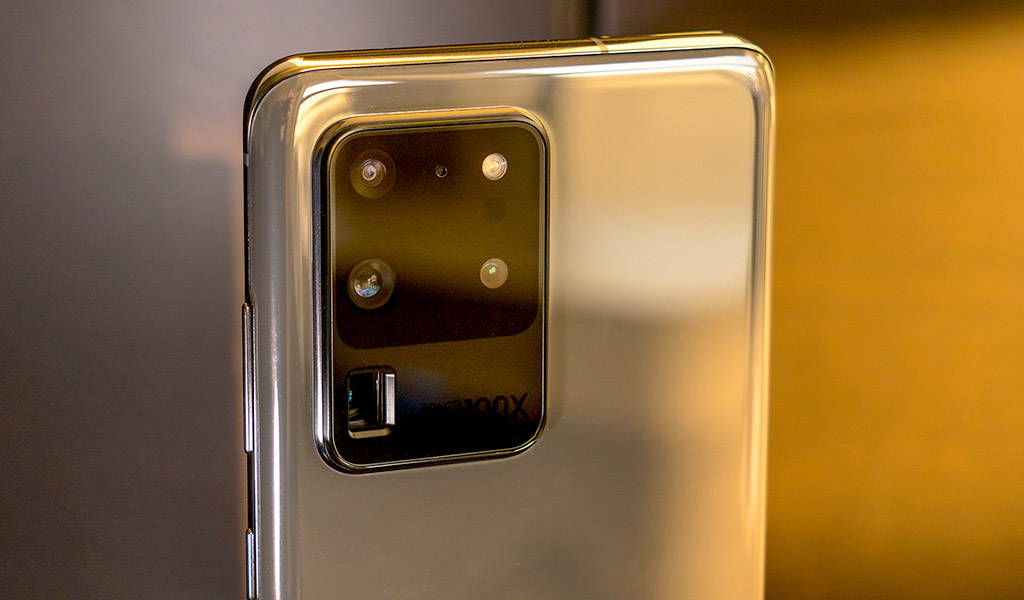
Camera – 108-megapixel sensor
By now, we know that megapixels do not make or break a camera. Here’s the thing: the image sensor inside is actually 12-megapixels. Samsung uses what’s called pixel binning to split each pixel in the sensor at a 9:1 ratio to push the number up to 108.
While the sensor’s physical size is 70 per cent larger than the Galaxy S10+, pixel binning ultimately determines how well it shoots. However, you can turn 108-megapixels off and shoot at 12-megapixels, which is better in low-light settings.
With the right conditions, the S20 Ultra can capture amazing shots, with a great number of options available to shoot with. Pro mode has always been my personal favourite, though it bothers me Samsung won’t let it work with all three lenses. Single Take is surprisingly useful for capturing a key moment in multiple ways. If you’re watching live music and get close enough, pan around the band and you get multiple photos and video clips all at once. It’s not as great for most situations, but is handy at the right time.
Food mode is made for the Instagram and Facebook crowd. Live Focus is back, though I found the standard and telephoto lenses adept at creating bokeh effects of their own. I would recommend turning the scene optimizer off to reduce the level of software processing so that colours don’t oversaturate. Unfortunately, it may still oversharpen objects, or smooth out skin a little too much.
That processing can be problematic when interpreting night or low-light scenes, where subtlety is often the better route. Night mode is better than it was before, but I don’t see it overlapping Google or Huawei. If you’re comfortable enough, shoot in RAW and learn to edit those images. It’s the only way you can avoid any post-processing.
Video recording
The S20 Ultra supports 8K video recording, but unless you have an 8K TV lying around, it shouldn’t matter to you. There’s also a caveat to how this works that you may want to know.
To shoot in 8K, you need at least a 33-megapixel sensor or higher. Since the telephoto lens has the 48-megapixel sensor, that’s the one that actually shoots the footage. You don’t notice the switch from the standard lens, but that’s what’s happening to get 8K.
It is neat that you can pull out a 33-megapixel still photo from 8K footage, but I would only attempt to do it in daylight conditions for subjects that are further away. If you’re shooting a vista, or capturing wildlife from a distance, there’s a possibility such a feature could work.
Those instances may be few and far between. Plus, 8K TVs (and content) aren’t ubiquitous yet, so it may be a feature that’s more relevant later on. To me, shooting in 4K at 60fps is more impactful. Shoot any scene with plenty of movement and the footage will look nice and crisp.
Pro Video mode shouldn’t be overlooked, either. It’s the same idea as the Pro photo mode, with granular controls for composition. Adjust the shutter speed, ISO, white balance and focus, along with temperature, saturation, highlights, shadows and contrast. If you fancy yourself an amateur filmmaker, you might like that level of control over a scene. Unfortunately, it’s missing 24fps, which would have given footage a more cinematic flair.
Samsung continues to restrict lenses for video capture. You can’t shoot any video with the ultra-wide lens, and with the telephoto one stepping in on 8K, it’s not available, either.
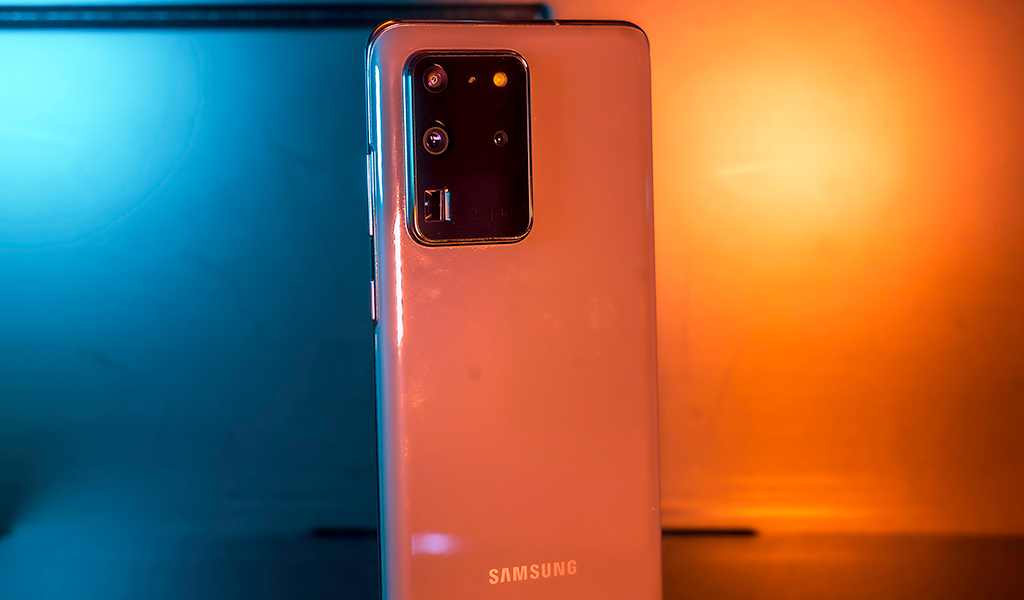
Battery life
With all the features and performance packed into this phone, you’d be right to wonder about battery life. In my testing, it held out impressively well, giving me juice to work with after a long day of regular usage.
I’d expect something good when there’s a 5000mAh battery inside, but its ability to sip gradually is superb engineering. It’s some of the best battery performance I’ve seen in a smartphone of its size. It is true that 120Hz does affect its longevity per charge, though I was fine with that trade-off.
The phone comes with a 25W charger in the box, capable of fast charging from zero to full in roughly one hour. It does support 45W chargers in case you want to give that a boost. Of the three S20 phones, this is the only one that does.
Wireless PowerShare is there for those times you want to charge another device wirelessly on the phone’s back. It’s decent for a quick boost on another phone, but is better suited for smaller devices, like the Galaxy Buds or Buds+, for instance. Anything that supports Qi wireless charging is compatible.
5G connectivity
Canada’s major carriers have confirmed their 5G networks are coming. Rogers even rolled out its own on March 6, but it only works in pockets of downtown Vancouver, Toronto, Ottawa and Montreal. I didn’t have access while testing the S20 Ultra, so can’t offer any insight into how well it works.
Final thoughts
The S20 Ultra is undoubtedly a powerful and fully-loaded handset. The big screen, robust components and smooth performance should make it a shoo-in for anyone. And yet, I’m cautious to recommend it. The Galaxy S20 and S20+ are impressive and the features that set the Ultra apart are either not as compelling or not as relevant yet.
If you want the best of the best Samsung can offer, then sure, this may be the phone for you. But if you want competent performance with most of the same features (and a better price), either one of the other two S20 devices would suffice for most users. It’s also a big phone in size, and that could matter where ergonomics are concerned.
The Samsung Galaxy S20 Ultra 5G is available now in cosmic grey.

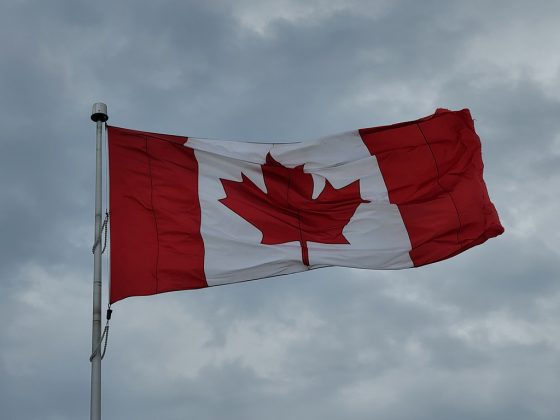
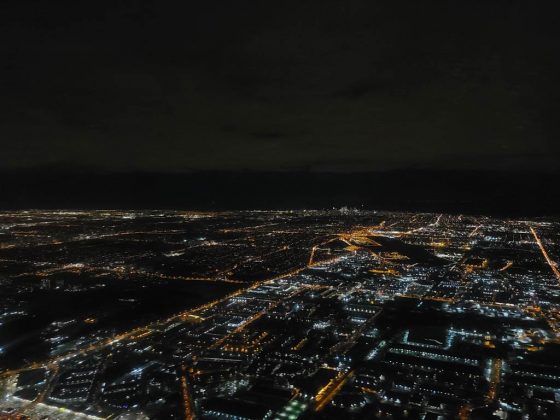



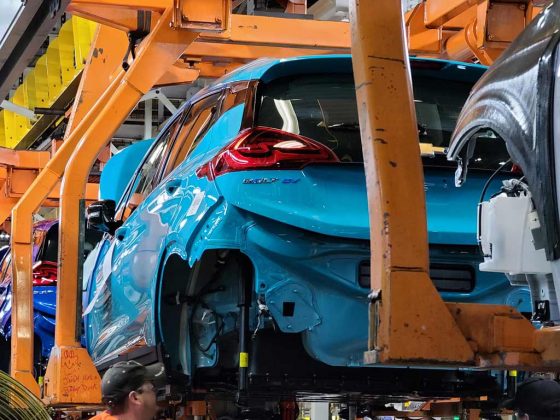
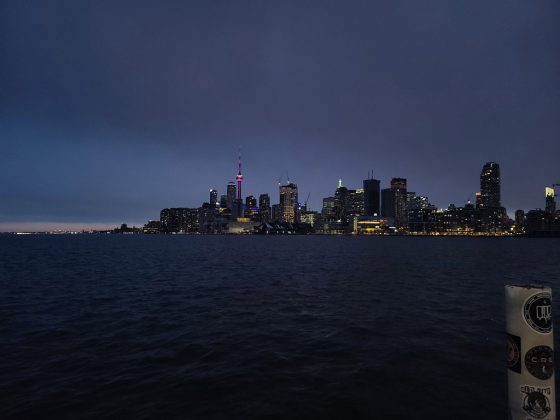

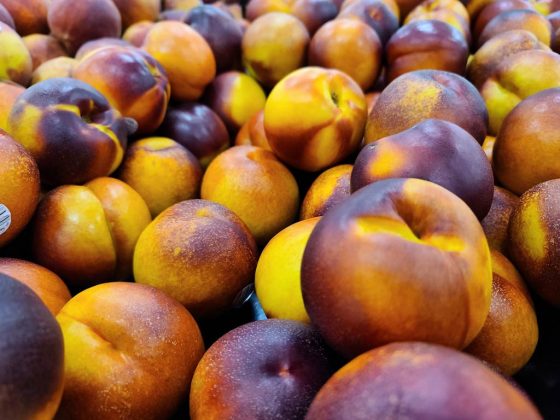
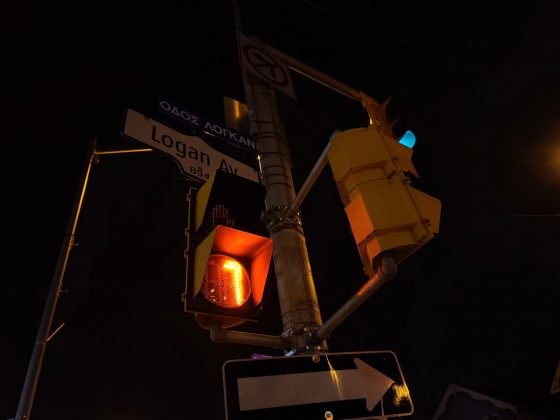
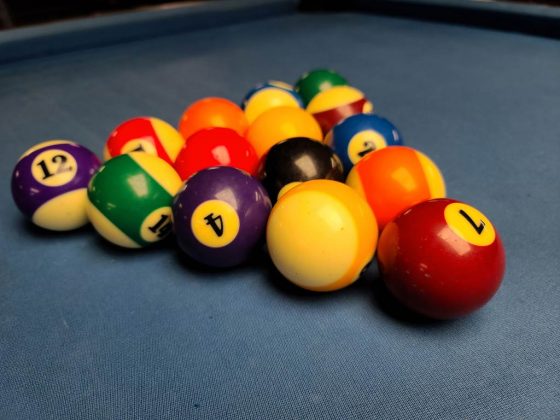



The feature I like is the large screen size
The insane battery life, and 12mp camera are both perks for me!
life of battery and screen size
I like the large screen and the long battery life.
We absolutely love the camera’s Space Zoom and the S20 Ultra’s 5G capability.
Camera and battery life are definite pluses.
The larger screen size – I do a lot of work via my phone. And the fast charging capability.
The large (new and not cracked 😉 ) screen and long battery life would be great features to have in a phone.
5G and large screen!
I like the 6.9 inch screen size (my old eyes are getting weak) and I like the recharge time of one hour.
The larger screen for sure and the longer battery life
I love the camera’s Space Zoom and the 5G capability.
Battery life+fast charging and the camera!
Long battery life and 5G would be amazing in a phone like this.
battery life and camera
The large screen and the battery life.
The battery life and the camera.
camera space-zoom and battery life are my choices
I like the 5G technology and large screen
long battery life and advanced camera features are my favourites
The ability of the camera life would make my life so much easier and better – I love the that the phone is headlined by its 108-megapixel standard wide lens. I love taking pictures of my friends, family and nature and this would provide a good quality phone I could use!
Love the big screen and the camera. Amazing. Thank you.
My favourites are the camera and the battery life. I take all family pictures with my phone so a quality image is especialy important.
Battery life and the screen size.
I like the camera and the battery life.
The large screen and the battery life.
The battery life and screen size.
The battery life and 6.9-inch screen size
The battery life and 6.9-inch screen size
The food mode on the camera would make my life easier as I love to take pictures of food for my Instagram! The battery life would also make my life easier. Thank you for this opportunity!
Great to have 5G access and the amazing camera would be fun
Good Battery life is a big plus and I love the big screen.
I think a long lasting battery and a good Camera Smile Please and thanks
The battery life would definitely make my life easier as would the screen size.
Wow. That screen size and 120Hz? Amazing.
1. 5000 mAh Battery
2. 100X smart zoom
Camera and storage space would make my life easier.
I like the camera with the telephoto lens & 12-mega pixel ultra wide angle. The second thing I like is the battery 5000 mAh.
The large screen and the longer battery life
Battery life and large screen
The large screen since my eyesight isn’t the best. I love the fact it has extended battery life.
This would be wonderful to win! The camera and battery life are great! Thanks for the chance
The amazing battery life and the great camera!!
First feature is the 6.9 inch display, the bigger the better right. Second feature has to be the 120Hz refresh rate because i would really appreciate a buttery smooth experience.
1) Screen size
2) Amazing battery life
Extended battery life and High-resolution camera that can zoom from 30x to 100x closer with the Space Zoom
Battery life and camera
This phone sounds pretty amazing! but my favorite features would have to be the battery life/power!! The camera 108-megapixels!! Just think of the selfies one could take!!! 😛 And last but not least the screen size!! 6.9 thats pretty awesome!
Battery life and amazing camera
1) Screen size
2) Amazing battery life
Comments are closed.